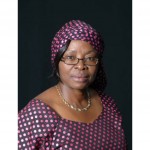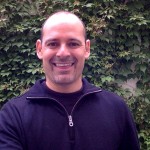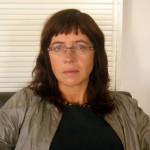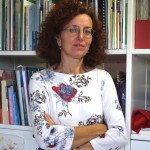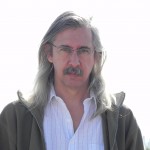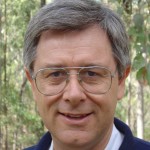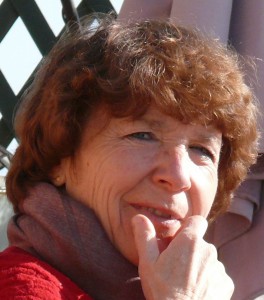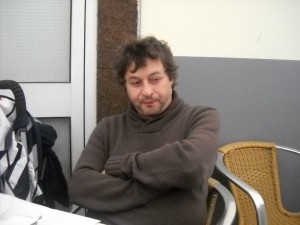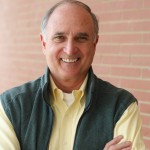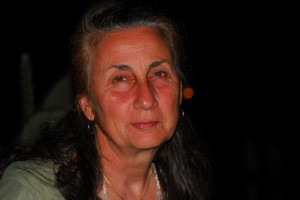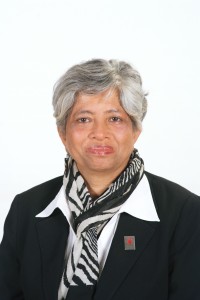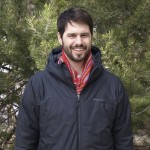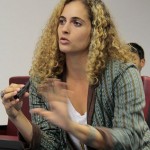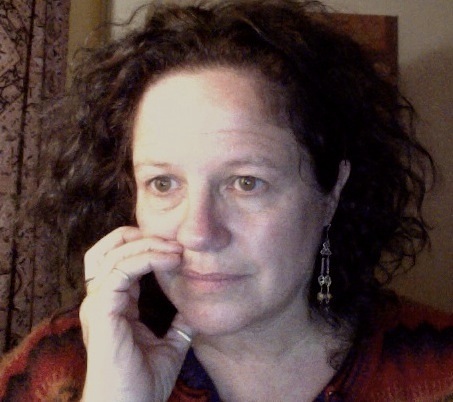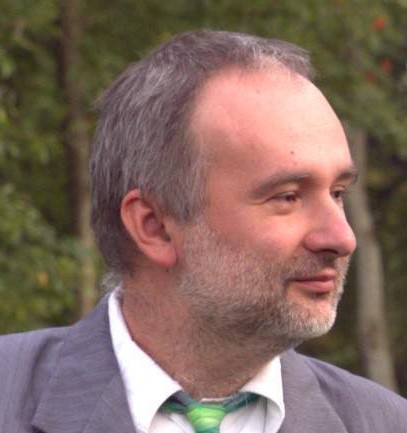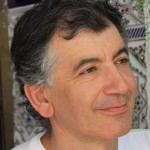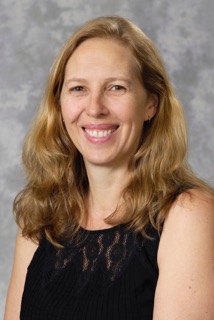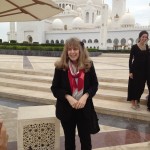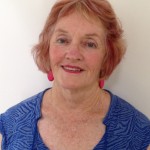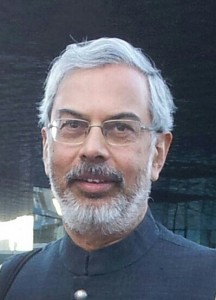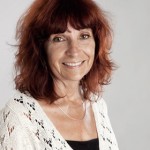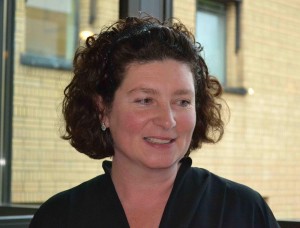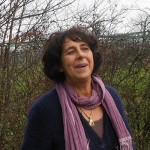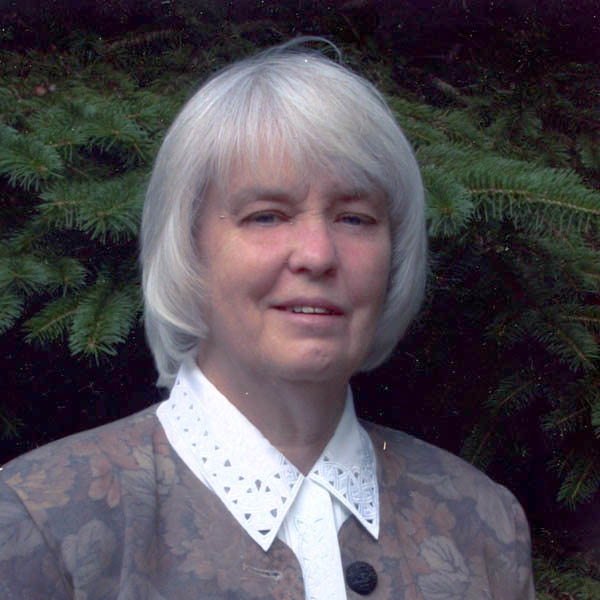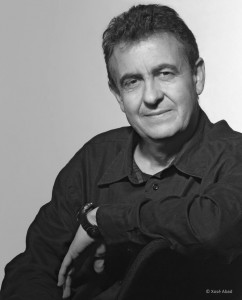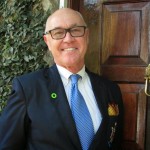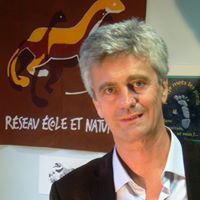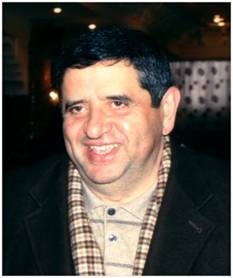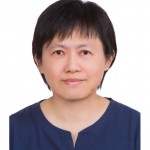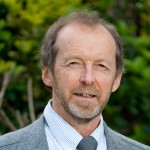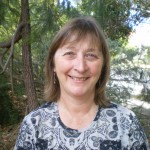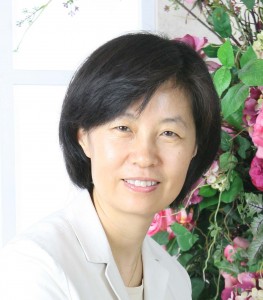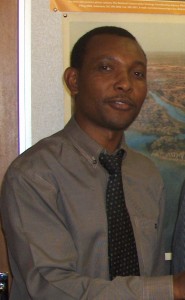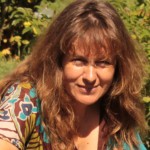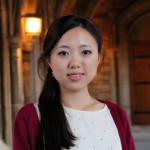Akpezi Ogbuigwe, former Head of environmental education and training at the United Nations Environment Programme (UNEP), currently a Reader at the Rivers State University of Science and Technology and Founder, ANPEZ Center for Environment and Development. She is involved in youth mentoring and training as well as community development; her research areas are environmental law and environmental education and sustainability.
Alberto Arenas is an Associate Professor in the College of Education at the University of Arizona. Originally from Colombia, he specializes in the intersection between environmental and sustainability education with sociology and history of education. Previously he was an assistant professor at the University of Massachusetts, Amherst where he taught at the Center for International Education. He is the author of over 60 publications and conference papers, and his manuscripts have been published in some of the leading educational journals in the world, including Teachers College Record, Compare, and International Review of Education. For the period 2012-2015, Professor Arenas has been a member of the Commission on Education and Communication (North America and the Caribbean Region) of the International Union for Conservation of Nature (IUCN). In 2013, Professor Arenas was a member of the Scientific Committee of the 7th World Environmental Education Congress held in Morocco. In 2014 he was a Fulbright Scholar in Mexico studying environmental and sustainability education.
Anna Batorczak is a biologist and ecologist. She completed her PhD dissertation on “Comparison of ESD in Poland and UK” at the Pedagogy Department of UW. Anna Batorczak has been working in University Centre for Environmental Studies and Sustainable Development at University of Warsaw from 1996 in the field of education for sustainable development organising training and writing educational materials. She has initiated and coordinated a number of national and international projects on ESD including PHARE, NATO, National Fund of Environmental Protection and multilateral projects financed by European Commission. This has involved developing tools, organising training, seminars, writing materials and reports for teachers, educators, rangers, craftsman and other professional groups. She is author of number of educational publications in the field of education for sustainability.
Antonella Bachiorri is a Biologist with a PhD in Ecology and a Master in Education for Sustainability. She coordinates the Italian Centre for Research and Environmental Education (C.I.R.E.A) - Department of Life Sciences, at the University of Parma (Italy) and since the 90’s, she has been involved in many national and international projects and initiatives related to Environmental Education and Education for Sustainability. She is member of different scientific committees and Editorial Boards of national and international Journals in the field of Education for Sustainability.
Biology degree by the Universidad Autónoma Metropolitana-Iztapalapa. Master degree in Education Research by the Universidad Iberoamericana-Puebla and PhD in Biological Science by the Universidad Autónoma de Madrid. Main reseach interest in environmental education are formal education, evaluation and social representation of environmental problems. Chairman of the II Congreso Nacional de Investigación en Educación Ambiental para la Sustentabilidad, and has published papers and books related to environmental education.
Cam Mackenzie has been involved in environmental education since 1980 and has been a principal advisor - environmental sustainability for the Department of Education and Training in Queensland. He is currently principal of the Amaroo Environmental Education Centre, Toowoomba, Queensland, Australia and has been past Vice President and Treasurer of the Australian Association of Environment Education. Cam is a judge for the Queensland Premier’s Sustainability and Australian Banksia Foundation Environmental Awards. In 2011 he was awarded the Australia Day Medal for his service to environmental education in Queensland as well as Environmental Educator of the Year Award from the Australian Association for Environmental Education.
Christine Affolter is the head of secretariat of ENSI i.n.p.a. (Environment and school initiatives), a network active in environmental education and education for sustainable development for almost 30 years. Beside of ENSI she has been managing the large COMENIUS-network CoDeS, which set a focus on criteria and methods for successful school-community collaboration. In Switzerland she is working in foundation ‘éducation21’, the competence centre for ESD, she is responsible for international collaboration. In her professional career she has further been teaching in schools and in teacher education, was managing large projects for several institutions, was head of a department in a competence centre and runs a small private enterprise. Her background is in pedagogy, management and andragogy, with a focus on environmental education and education for sustainable development.
Dario Padovan is Senior Researcher and Assistant Professor of Sociology at the University of Turin and he is member of the Department of Culture, Politics and Society. He works since long time on history of social sciences, environmental sociology, social metabolism, sustainable consumption, sociology of risk, environmental conflicts. He is member of Editorial Committee of Theomai Journal (Buenos Aires), Democracy & Nature (London - U.K.), Chosmos & History (Melbourne, Australia). He is Vice-Chair of Scientific Board of the Research Network 31“Ethnic Relations, Racism and Antisemitism” of European Sociological Association, and is member of Esa Research Network 12 on “Environment and Sociology”, and of RN 6 on “Sociology of Consumption” of ESA. Recently is doing research on sustainability, environmental accounting, urban metabolism regulation, sociology of practices, energy, environmental conflicts, risk perception, smart energy grids, socio-technical systems transition.
David W. Orr is “Counselor to the President” at Oberlin College and Steven A. Minter fellow at the Cleveland Foundation. He is the author of seven books (including Down to the Wire: Confronting Climate Collapse (Oxford, 2009)), over 200 articles, reviews, book chapters, and professional publications. He has served as a board member or adviser to several foundations and Boards of organizations including the Rocky Mountain Institute and the Aldo Leopold Foundation. Currently he is a Trustee of the Bioneers, Alliance for Sustainable Colorado, and the WorldWatch Institute. He has been awarded several honorary degrees and other awards including a Lyndhurst Prize, a National Achievement Award from the National Wildlife Federation, a “Visionary Leadership Award” from Second Nature, and most recently an award for leadership from the U.S. Green Building Council. He is one of driving forces behind the Adam Joseph Lewis Center, the founder and Chair of the Board of the Oberlin project and a founding editor of the journal Solutions.
Elisabetta Falchetti (Prof. Dr.). Zoologist, specialized in biodiversity Conservation. Her work at the Educational Department of the Zoological Museum of Rome involves studies on environmental education and planetary ethics. She is lecturer in graduate and post-graduated courses in Italian Universities on naturalistic-environmental education. Her current research interests include formal-informal-lifelong learning and its impact on socio-environmental problems (democracy and participation, social inclusion/exclusion and marginalization, intercultural dialogue, acceptance and valorization of cultural diversity, social conflicts). She is author of several books and essays, many of which devoted to transformative education issues.
Gayatri Raghwa, (Senior Specialist , Outreach , Environment Agency – Abu Dhabi) is a student of Geography and an ardent practitioner in the field of environment education. Her current position at the Environment Agency- Abu Dhabi entails strategizing, developing and designing programmes on educating for sustainability that are implemented in Abu Dhabi schools and colleges/ universities. She has also co-authored many resource materials on EE for schools and universities. Prior to working at the Agency , she has also worked extensively in her home country, India .
Greg Lowan-Trudeau, PhD is an Assistant Professor in the Werklund School of Education at the University of Calgary and an Adjunct Professor in the Department of First Nations Studies at the University of Northern British Columbia, Canada. His research and teaching interests include intercultural and Indigenous environmental philosophy, education, and activism.
Inny Accioly is professor of Environmental Education of the MBA Programs at Universidade Católica de Petrópolis (UCP) and Universidade Veiga de Almeida - Rio de Janeiro, Brazil. She works as consultant in popular environmental education projects in public schools and also with social movements. She specializes in Public Policies and “Labor, Popular Education and Social Movements”. She is also a research fellow in the “Marxism and Education Collective of Researchers (COLEMARX/UFRJ)” and the “Laboratory of Investigation on education, environment and society (LIEAS/UFRJ)” in the Federal University of Rio de Janeiro.
Isabel Orellana est professeure au Département de didactique et directrice à la Maîtrise en sciences de l’environnement de l’UQAM. Elle est chercheure au Centre de recherche en éducation et formation relatives à l’environnement et à l’écocitoyenneté de cette université et au Réseau québécois de recherche et de connaissances relatives aux peuples autochtones - DIALOG. Ses principaux domaines de spécialisation sont l’éducation relative à l’environnement (ERE), l’écocitoyenneté, l’équité socio-écologique, écodéveloppement communautaire et l’interculturalité. Elle s’intéresse à la construction sociale de savoirs en ERE et aux processus identitaires, émancipatoires et de territorialité en contexte socio-écologique critique. Elle a dirigé et codirigé des projets de recherche collaborative et de coopération internationale en Amérique latine. Elle a contribué à créer des espaces structurés interdisciplinaires et de dialogue de savoirs université-milieu autour des thématiques d’écocitoyenneté, d’écojustice et de problématiques écosociales reliées à l’expansion du modèle extractif, dont la Coalition québécoise sur les impacts environnementaux des transnationales en Amérique latine.
Jan Činčera is a research assistant at the Masaryk University Brno (Department of Environmental Studies) and Technical University Liberec (Department of Education and Psychology), Czech Republic. He is interested in analysing different instructional strategies and approaches applied in environmental education programmes, e.g. earth education, inquiry-based learning, thematic interpretation, etc. He cooperates with environmental education centres as a programme consultant and evaluator.
Javier Benayas is Full Professor of Ecology at the Universidad Autónoma the Madrid. He is Executive Secretary of the Commission on Environmental Quality, Sustainable Development and Risk Prevention (CADEP) of the Conference of Rectors of Spanish Universities (CRUE) www.crue.es and Deputy Director of the Research Institute for Higher Education and Science (INAECU). https://www.inaecu.com. He has 20 years of research experience in the fields of environmental education evaluation, public use management in protected areas, sustainable development planning for urban areas and human-landscape relationship. Address: Social-Ecological Systems Laboratory, Department of Ecology, Universidad Autónoma de Madrid, 28049 Madrid, Spain. email: javier.benayas@uam.es
Jo-Anne’s research is in sociology of education, with a special interest in post-structuralist theories of identity, embodiment and power in environmental and sustainability education. Recent research has focussed on systems-based change in teacher education.
Judy Braus has been actively involved in national and international environment and education efforts for almost three decades. She is currently the Executive Director of the North American Association for Environmental Education (NAAEE), a non-profit organization dedicated to advancing environmental literacy and civic engagement. Prior to NAAEE, she successfully managed the education and outreach departments at three national and international conservation organizations: the National Audubon Society, World Wildlife Fund, and the National Wildlife Federation. She was also the manager of environmental education programming at the U.S. Peace Corps. She has led many international environmental education projects, facilitated leadership workshops and conferences in dozens of countries, been the chief editor of several successful national publishing efforts focused on environmental education, and published in numerous nationally recognized periodicals and books. Her areas of expertise include environmental education, project management and strategic planning, leadership training and facilitation, conservation planning, writing and publishing, curriculum and web development, fundraising, and evaluation.
Julie is Associate Professor in the School of Early Childhood, Queensland University of Technology and has been teaching, advocating for, and researching in this field for over 20 years. She edited the first textbook on this subject, Young Children and the Environment: Early Learning for Sustainability (Cambridge University Press, 2010).
Mr Kartikeya V Sarabhai is Founder Director of the Centre for Environment Education (CEE), Centre of Excellence for Environmental Education of the Ministry of Environment, Forests and Climate Change, Government of India. He is the Chairholder of the UNESCO Chair on Education for Sustainable Development and the Human Habitat established at CEE in collaboration with CEPT University. He was a member of the UNESCO Reference Group for the Decade of Education for Sustainable Development (DESD). He is the Editor-in-chief of the Journal of Education for Sustainable Development, a Sage publication. Mr Sarabhai took the leadership to organize the UNESCO 4th International Conference on Environmental Education (Tbilisi+30) in India in 2007 that led to discussions on efforts of EE in strengthening Education for Sustainable Development. He is the co-chair of the Working Group at the Brookings Institution in developing indicators and measures for Global Citizenship Education. He is also the Co-chair of the Earth Charter International Council. Under his leadership, through Paryavaran Mitra, a nationwide environmental education program, CEE reaches out to about 200,000 schools in India. The Government of India awarded the Padma Shri in 2012, in recognition of his exceptional and distinguished service in the field of Environmental Education.
Lucie Sauvé is a professor at the Faculty of Education of the Université du Québec à Montréal (UQAM), Canada, and director of the Centr’ERE. She is member of the Institute of Environmental Sciences, the Health and Society Institute, and Dialog, Québec Research Network on Indigenous Issues. Sauvé is the founder and co-responsible of the UQAM postgraduate program in environmental education and also co-founder and director of the international research journal Éducation relative à l’environnement – Regards, Recherches, Réflexions. Her current research focuses on environmental health education (agriculture, food and water issues), energy education, ecocitizenship education and environmental educators’ and community leaders’ professional development. She has a strong experience of international cooperation projects in Latin America (Amazonian region). In 2009, she was co-president of the 5th World Environmental Education Congress and received an award from the ADEREQ as recognition of her contribution to research in education.
Machtelijn Brummel is a senior policy-advisor, in the Dutch program Learning for Sustainable Development – Duurzaam Door. She is based at the Netherlands Enterprise Agency in Utrecht, where she helps to stimulate and implement social innovation (both in regional, national and international networks). Education, Learning and Facilitating Vital Coalitions are important pillars in her work.
Michaela Mayer, Ph. D. in Scientific Education is a member of the Italian UNESCO commission for ESD and of the ENSI International network Steering Committee. She has been President of ENSI, member of the PISA Science expert group 2006 and 2015, and of the UNECE expert group for the development of ESD indicators. As responsible for research in the Italian National Institute for the Evaluation of the Educational System (INVALSI) and as freelance expert she has been involved in many national and international Projects and initiatives related to EE and ESD, with a special focus on Evaluation. She has been a member of the WEEC international Advisory Board in 2005 (Turin) and in 2012 (Marrakesh).
Million Belay is a founder and director of MELCA – Ethiopia, an indigenous NGO working on issues of agro-ecology, intergenerational learning, advocacy and livelihood improvement of local and indigenous peoples. He also coordinates the Alliance for Food Sovereignty for Africa, a network of networks of major networks in Africa. Million has been working over two decades on the issues of intergenerational learning of bio-cultural diversity, sustainable agriculture, the right of local communities for seed and food sovereignty and forest issues. His main interest is now advocacy on food sovereignty, learning among generations, knowledge dialogues and the use of participatory mapping for social learning, identity building and mobilization of memory for resilience. He has PhD in environmental learning and MsC in tourism and conservation and BsC in Biology.
Pamela J. Puntenney holds a Ph.D. in natural resources, education, and anthropology from the University of Michigan. Pam’s work focuses on cross-cultural solutions, the impact of world systems on local communities, public choice and public responsibility, learning systems and sustainable solutions. She is the founder and Executive Director of Environmental & Human Systems Management and serves as Co-Chair of the United Nations Sustainable Development Education Caucus – Head of climate change delegation. Currently, her work focuses on the new protocol as part of the 2020 global treaty on climate change.
Associate professor of Environmental Education and Sustainable Development in the Department of Pedagogy and Didactics, Faculty of Educational Sciences, University of Coruña, Spain.
Peter Blaze Corcoran
Peter Blaze Corcoran is a Professor and Director of the Center for Environmental and Sustainability Education at Florida Gulf Coast University. He is currently on sabbatical in Kenya and has served as a Visiting Fulbright Professor at Wangari Maathai Institute for Peace and Environmental Studies at University of Nairobi. He serves on United Nations expert panels in education at UNESCO and UNEP. Corcoran’s recent books are Intergenerational Learning and Transformative Leadership for Sustainable Futures and Learning for Sustainability in Times of Accelerating Change.
Roland Gerard est co-directeur du Réseau Ecole et Nature (REN), co-président du Collectif Français pour l’Éducation à l’Environnement vers un Développement Durable (CFEEDD), co-animateur de l’Espace National de Concertation (ENC) pour l’EEDD, membre du Conseil National de la Transition Ecologique (CNTE), membre de la commission nationale française de l’UNESCO et expert auprès de l’UICN France. Éducateur nature depuis les années 1970 dans le secteur associatif, il a participé à la création du REN en 1983. En 1997, RG a participé à la création du CFEEDD. Coordinateur depuis son origine, RG en est co-président depuis 2003, année de dépôt des statuts. En 2008, RG participe au WEEC 4 à Durban. En 2009, Roland Gérard a participé en France à la création de l’Espace National de Concertation (ENC) pour l’EEDD. L’ENC a pour but de donner à la France une gouvernance pour l’EEDD dans laquelle toutes les parties prenantes se reconnaissent. En 2012 et 2013, il a assuré la coordination politique des troisièmes assises de l’EEDD française, co- organisées par le CFEEDD et le GRAINE Rhône-Alpes. les assises se sont déroulées dans 95 territoires français avant de se conclure à Lyon 5-7 Mars 2013. La même année RG a participé au WEEC 7 à Marrakech. RG a été décoré de l’Ordre National du Mérite en 2003.
Saad Benamar, PhD in Forest’s Ecophysiology at the University Henri Poincaré (Nancy-France, 1998), is, since 1991, Professor of EE, ESD and ecology, head of Biology Department, at Sidi Mohamed Ben Abdellah University (Fez-Morocco). At the beginning of 2012, Professor Benamar became pedagogic coordinator of an educational Master on Life sciences, and Director of the laboratory of Urban and Plant Environmental Sciences. His research is focused on the evaluation of the presence and the effectiveness of EE and ESD and the strategies for their strengthening in the Moroccan formal and non-formal educational systems. He has been involved in many national initiatives related to EE and ESD during the last two decades in the context of both university projects and associative activities as a General secretary of “Moroccan Forum of the Environmental Initiatives” and as Vice-president of “Fez Botanical garden Association”. Professor Benamar has contributed to the organization of the 7th WEEC as Co-Chair of the “Niche” devoted to Research on EE and as a president of several Congress oral sessions. (Email: saad.benamar@usmba.ac.ma)
I am an associate professor at the Graduate Institute of Environmental Education, National Taiwan Normal University and teach Environmental Education, Community Environmental Education, Environmental Behavior courses and so on. I initiated the Taiwan Green School Partnership Network Project which has run for more than ten years. I was the president of the Chinese Society for Environmental Education and assisted the Environmental Education Act passing at that moment.
Stephen Sterling is Professor of Sustainability Education at Plymouth University, head of the Centre for Sustainable Futures, and former Senior Advisor to the UK Higher Education Academy on Education for Sustainable Development (ESD), and has worked as a consultant in environmental and sustainability education in the academic and NGO fields nationally and internationally for around three decades. A Higher Education Academy National Teaching Fellow, he has been widely recognized for many years internationally as one of the leading voices in sustainability education.
Sue is a Senior Lecturer in the School of Education at the University of New England, Armidale, NSW. She has been engaged in early childhood education for sustainability advocacy and practice over two decades. Sue is an acknowledged author and has ongoing involvement in education for sustainability research and consultancy.
Professor Sun-Kyung Lee is an Environment and Science Educator, who specializes in curriculum development, teaching-learning strategy, and teacher education in the field of environmental education(EE) and education for sustainable development(ESD). She works at the department of Science Education in Cheongju National University of Education(CNUE) in Korea. Before CNUE, she worked at Korea Institute for Curriculum & Evaluation as a researcher and Cornell University as a program evaluator for Non-native Invasive Species management/education in the USA in 1999. Professor Lee well understands the demands of close international cooperation in EE and ESD globally as well as regionally in Asia-Pacific, and has shown distinguished activities with UNESCO, TEEN(Tripartite Environmental Education Network), ICOM-nathist, and ENSI(Environment and School Initiatives).
Praised author and speaker, Thierry Pardo is traveling worldwide with his family to present the contributions of free education through a emancipatory lens. Holder of a Ph.D. in Education, he is also an independent researcher affiliated to the Centre’ERE, at the Université du Québec à Montréal.
Victor Tichaona Pesanayi is Programme Manager of the Southern African Development Community (SADC)’s Regional Environmental Education Programme, where he coordinates regional environmental and sustainability education networks. These communities of practice include the national environmental education network representatives’ forum and three SADC Chairs on Mainstreaming Environment and Sustainability in African Universities (MESA). He is a Council member of the Environmental Education Association of southern Africa, where he is immediate past Secretary General. His main research area is small-scale farmers’ and agricultural educators’ cross-boundary social learning for sustainability as well as learning for rainwater harvesting, which are contributing to his doctoral studies.
Yolanda Ziaka is Economist, PhD in Environmental Education and Master in Visual Arts and Art Sciences. Based in Greece, she has been coordinating, since 1994, numerous international projects on Environmental Education and Communication and has been involved in various research and action networks and civil society organizations. She is the author / co-author and editor of several books and articles on Environmental Education, pedagogy, and art issues. Her research focuses on the popularization of environmental concepts and processes through the development of communication tools, addressed to diverse target groups (web: https://yziaka.wix.com/yolandaziaka).
Yue Li is a PhD candidate in the Department of Natural Resources at Cornell University. Her research focuses on professional development for environmental educators through both online and face-to-face activities developed by the EECapcity project. Yue investigates how environmental educators develop innovative ideas for their practice through networking with others in online learning communities and other platforms, designed to foster exchange of idea and practice. She uses social network analysis and practice theory to identify changes of networks and evaluate the impact of these changes on practice innovation in environmental education programs.https://yueyuelee.me.

